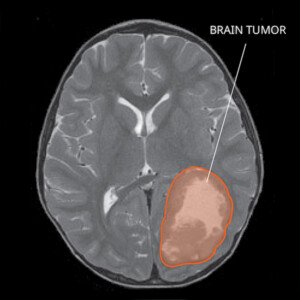
CyberKnife and other kinds of radiosurgery aim a beam of radiation directly to a brain tumor, sparing damage to healthy surrounding tissue.
Yet many people with a brain tumor undergo only manual surgery to remove the cancer.
Why isn’t CyberKnife and other types of radiosurgery more standard in the treatment of brain tumors?
“CyberKnife and other forms of stereotactic radiosurgery are becoming more standard treatment for brain tumors, especially for tumors of the skull base that are often much more difficult to access surgically,” explains David Poulad, MD, a board certified neurosurgeon with IGEA Brain & Spine who practices in Union, NJ, whose special interests include the surgical treatment of brain tumors.
“Only problem is for unknown lesions we often need a biopsy first to identify the tumor before initiating treatment.”
Why don’t ALL brain tumor patients receive CyberKnife (Gamma Knife) or radiosurgery?

Stereotactic radiosurgery equipment. cancer.gov
Dr. Poulad explains that stereotactic surgery and CyberKnife have “limitations for tumor sizes. Tumors often have to be less than 3 cm to respond [shrink].
“A lesion treated with SRS/CyberKnife [SRS] can take up to two years to regress.
“And it will initially cause significant swelling that can be very dangerous for a patient.”
Additional reasons CyberKnife and radiosurgery are not performed on all brain tumors:

• The patient, pretreatment, has worsening neurological symptoms and cannot wait for the time it takes for SRS to shrink the mass.
• The brain tumor is located extremely close to the brainstem or optic nerve, and a minimal margin of space between the tumor borders and critical areas of the brain are required for the procedure.
• The patient, pretreatment, has fluid buildup in the brain which promptly needs to be cleared; SRS can worsen it.
• The patient is a child — skull bones have not fused, making the invasive placement of the stereotactic headframe not possible.
CyberKnife or radiosurgery techniques are always being advanced, and as time goes on, more and more patients will be receiving this treatment for their brain tumors.










































